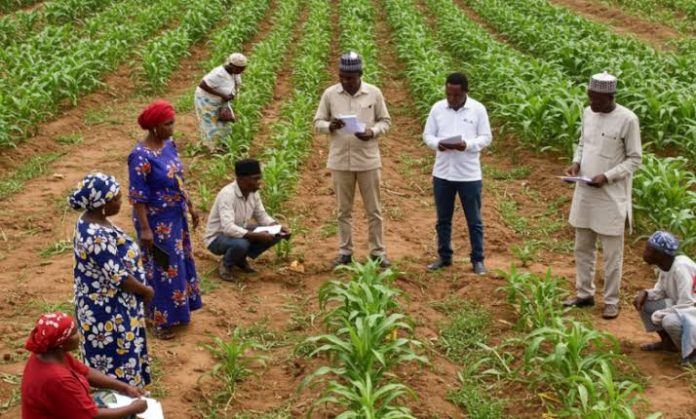In a bold step to tackle food insecurity and empower smallholder farmers, the NNPC Foundation, has launched a comprehensive agricultural training program targeting 6,000 vulnerable farmers across the country.
The initiative was formally unveiled in Ilora Baptist Grammar School, Idi-Igba, Oyo, as part of the South West phase of the programme.
Welcoming farmers, stakeholders, and dignitaries to the event, the Managing Director of NNPC Foundation, Mrs Emmanuel Arukwe, emphasized the company’s deep commitment to food security and rural empowerment.
The Managing Director who was represented at the event by Bala David, the Executive Director, Programme Development described the programme as a key component of NNPC Ltd’s corporate social responsibility, aimed at shifting vulnerable farmers from subsistence-level agriculture to commercial-scale production.
“This programme is a testament to our unwavering commitment to food security and economic empowerment,” she stated, adding that it addresses the critical challenges farmers face, including limited access to modern techniques, quality inputs, and competitive markets.
The initiative includes hands-on training in climate-resilient farming practices, soil and water management, organic fertilization, and post-harvest loss reduction.
Farmers will also benefit from tailored sessions conducted in local languages to ensure effective communication and learning.
Phase one of the training covers the South East, South South, and South West zones, while phase two will cater to the North Central, North West, and North East regions.
Arukwe revealed that in the South East alone, over 1,890 farmers were successfully trained—almost doubling the original target—highlighting the strong interest and the urgent need for such programmes.
The Managing Director encouraged participants in Oyo to engage actively with facilitators and make the most of the opportunity.
“This programme is designed specifically for your growth, and we have made deliberate efforts to ensure that language is not a barrier to your learning,” she said.
She also acknowledged the support of government partners and stakeholders, stressing the importance of collective action to transform Nigeria’s agricultural landscape and ensure a food-secure future.
In an address delivered on behalf of the Commissioner for Agriculture and Rural Development Olasunkami Olaleye by the Director , Regulation and Enforcement, Olusegun Ezekiel, the Commissioner said the need to empower smallholder and vulnerable farmers cannot be overemphasized, especially in light of the current global and national challenges affecting food production and security.
He said, “Any initiative that aims to equip our farmers with the tools, knowledge, and techniques required to thrive in these challenging times is indeed commendable and aligns with the agricultural transformation agenda of the Oyo State Government under the leadership of His Excellency, the Executive Governor of Oyo State, Oluseyi Makinde.
“While we acknowledge the good intentions behind this initiative, it is imperative for development partners and implementing agencies to work collaboratively with State institutions to ensure that programmes are aligned with ongoing State initiatives, avoid duplication, and maximize impact.
“Full engagement with the Ministry would have enriched the programme design and ensured better synergy with our rural development strategies and frameworks.
“Notwithstanding this oversight, we remain committed to supporting all well-meaning efforts aimed at improving the lives and livelihoods of our farmers.
“We are confident that the participants in this programme will benefit immensely and that the knowledge and skills they acquire will be translated into improved productivity, increased income, and sustainable farming practices.
“As we officially flag off this Training and Empowerment Programme here today, I urge all participants to take full advantage of the opportunity. Engage actively, learn diligently, and apply the skills to uplift your farming activities.
“This programme marks a critical step toward building resilience and self-sufficiency among our farmers.”

